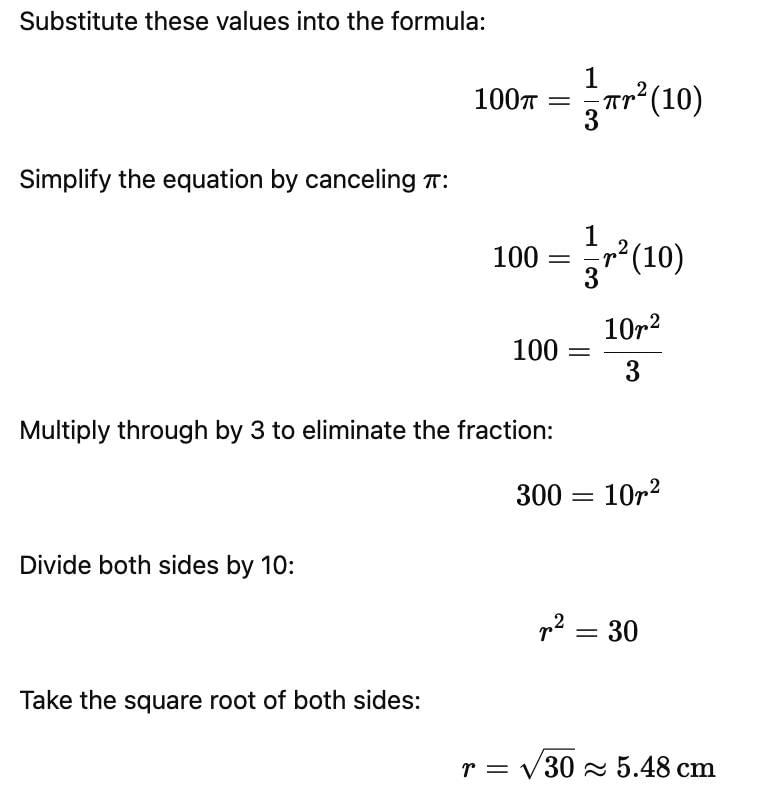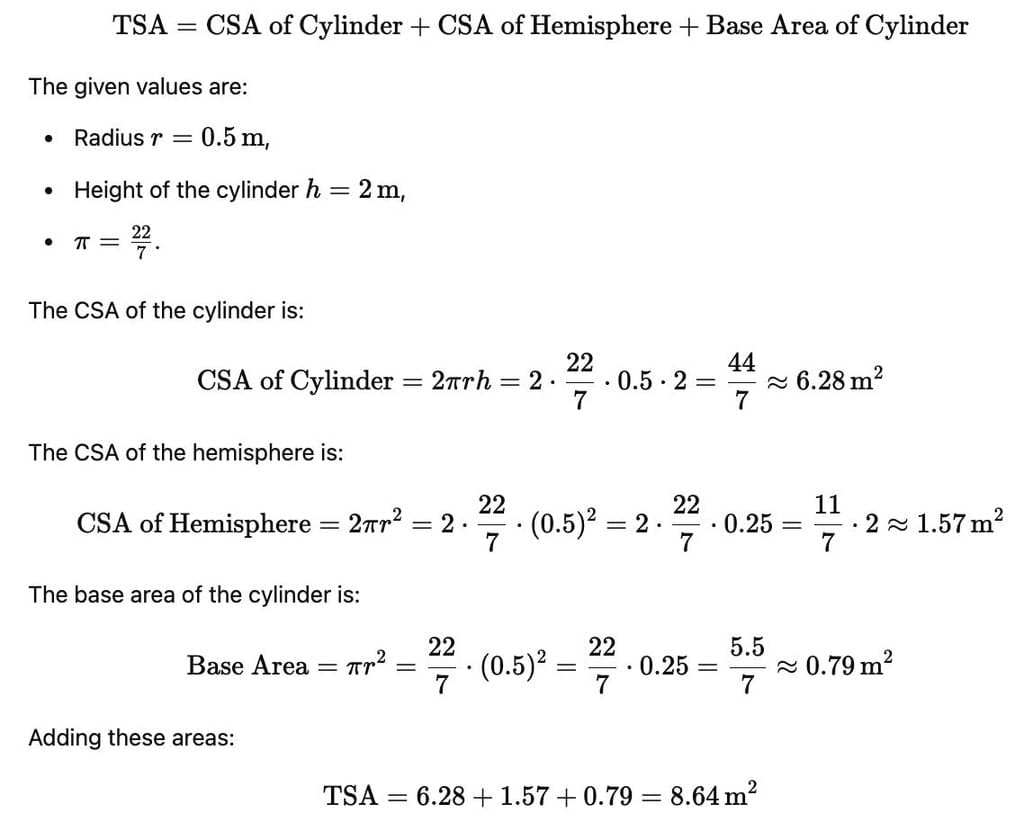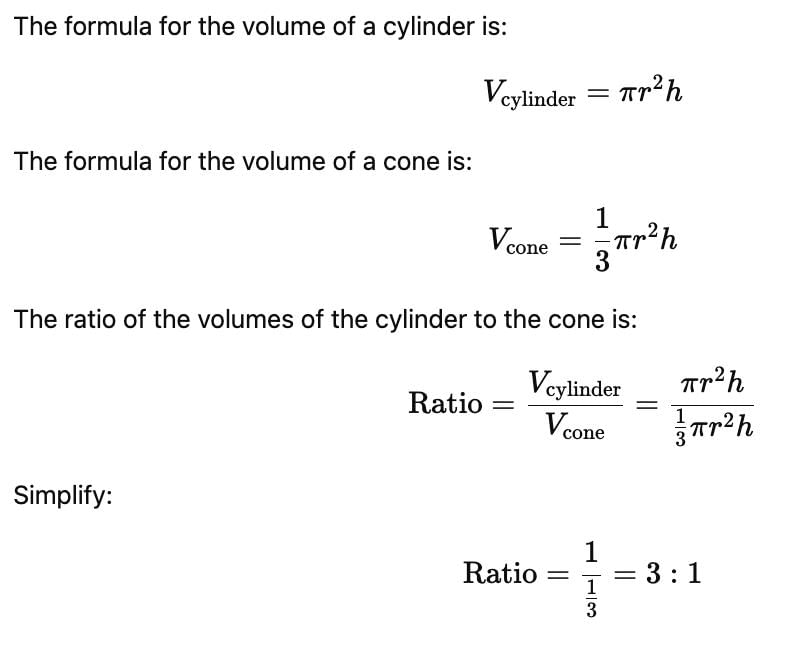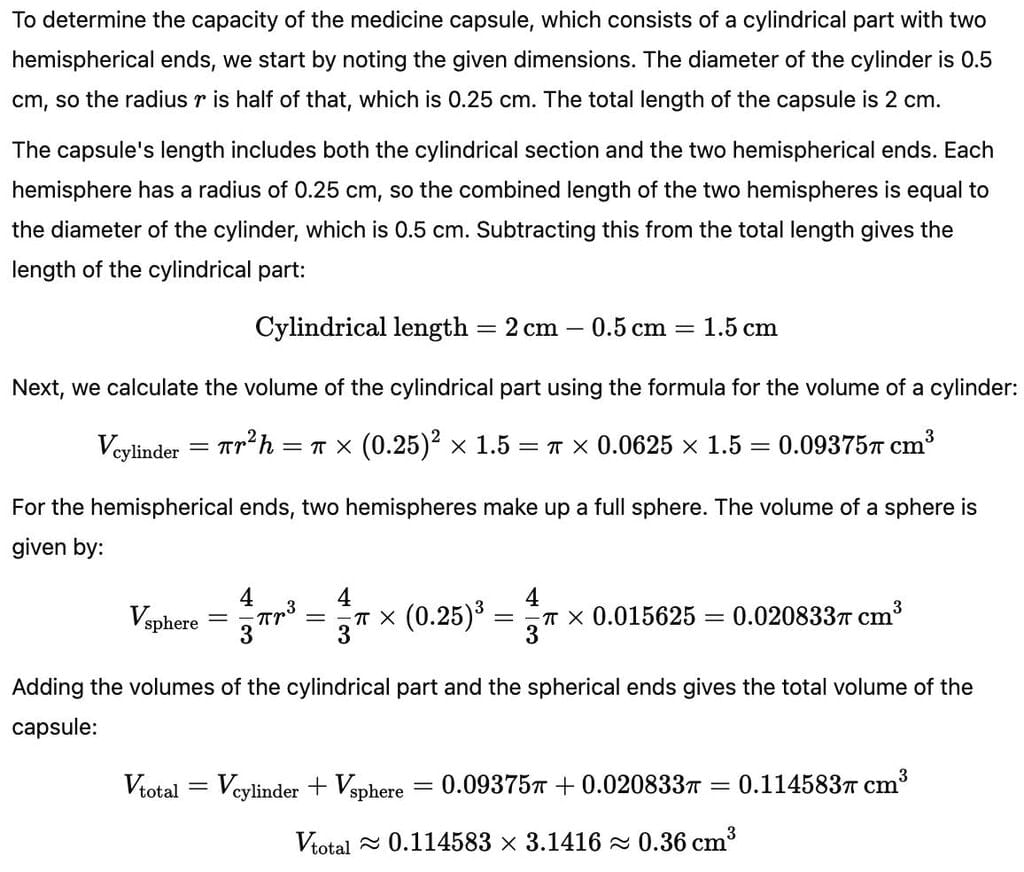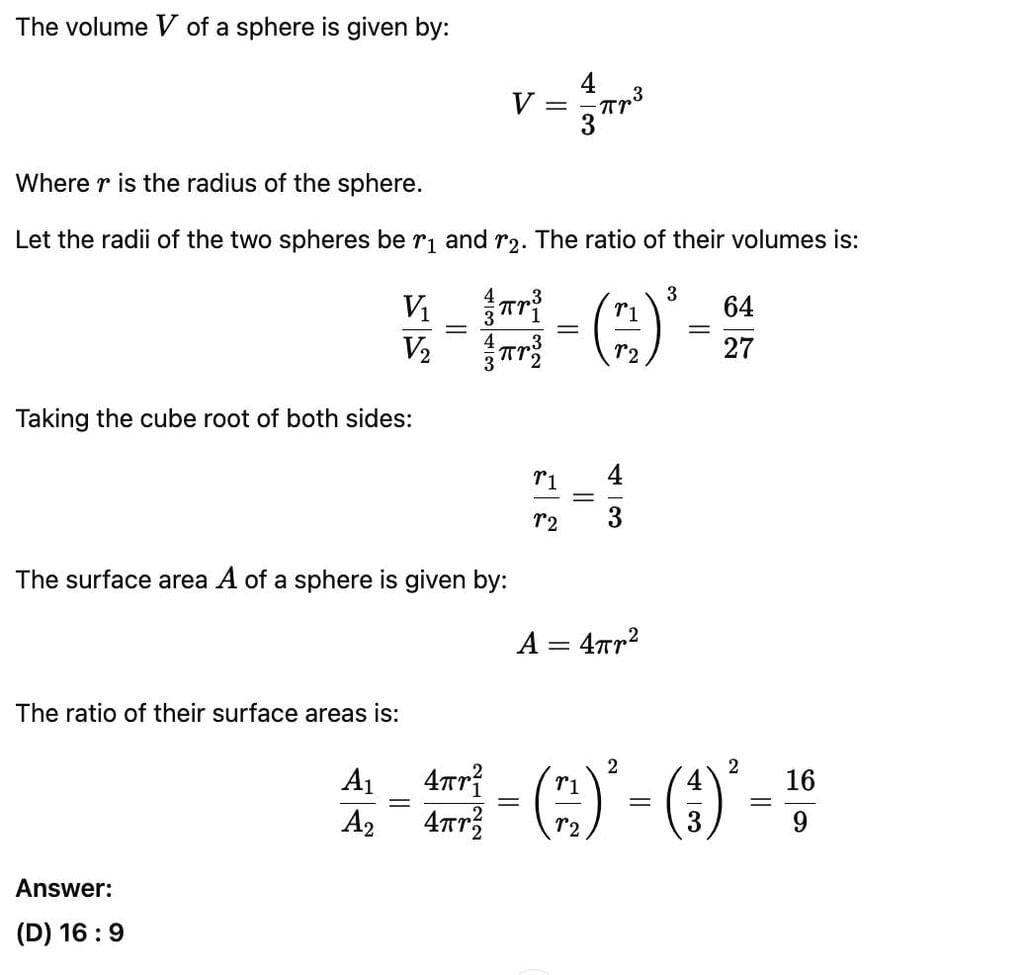RS Aggarwal Test: Surface Areas & Volumes - Class 10 MCQ
10 Questions MCQ Test Mathematics (Maths) Class 10 - RS Aggarwal Test: Surface Areas & Volumes
If a marble of radius 2.1 cm is put into a cylindrical cup full of water of radius 5 cm and height 6 cm, then how much water flows out of the cylindricall cup?
If we change the shape of an object from a sphere to a cylinder, then the volume of cylinder will
The lateral surface area of a cone with radius 6 cm and slant height 10 cm is:
The volume of a cone is 100π cm³ and its height is 10 cm. What is its radius?
A decorative fountain is designed in the shape of a cylinder with a hemispherical bowl on top. The height of the cylinder is 2 m, and the radius of both the cylinder and the hemisphere is 0.5 m. Find the total surface area of the fountain. (Use π=22/7)
A cylinder and a cone are of the same base radius and same height. Find the ratio of the volumes of the cylinder to that of the cone.
A mason constructs a wall of dimensions 270 cm x 300 cm x 350 cm with the bricks each of size 22.5 cm x 11.25 cm x 8.75 cm and it is assumed that 1/8 space is covered by the mortar.
Then the number of bricks used to construct the wall is
A medicine-capsule is in the shape of a cylinder of diameter 0.5 cm with two hemispheres stuck to each of its ends. The length of entire capsule is 2 cm. The capacity of the capsule is
Volumes of two spheres are in the ratio 64:27. The ratio of their surface areas is:
Two identical solid cubes of side a are joined end to end. Then the total surface area of the resulting cuboid is
|
127 videos|683 docs|84 tests
|




